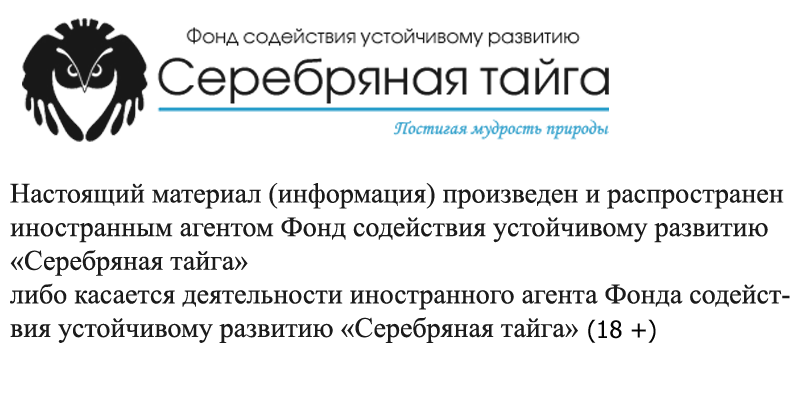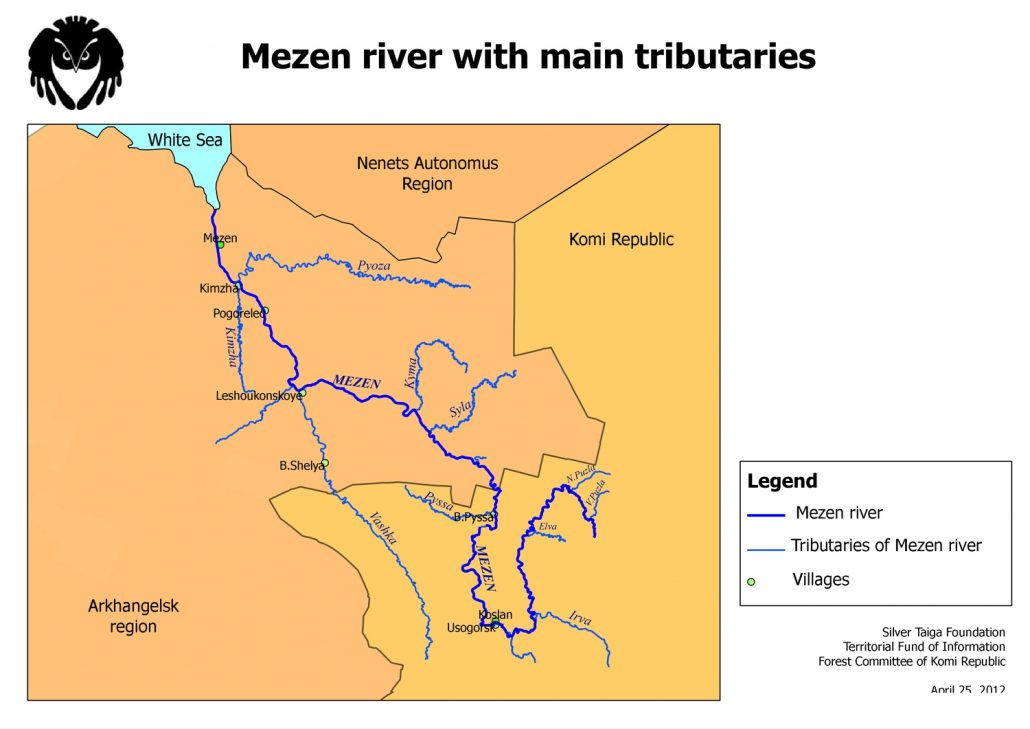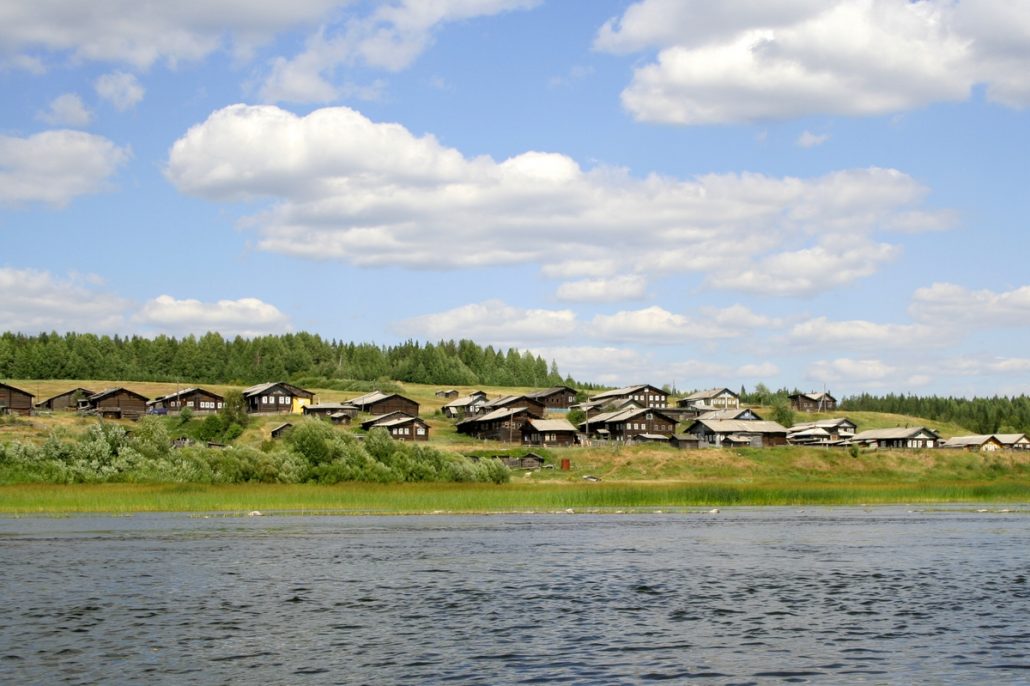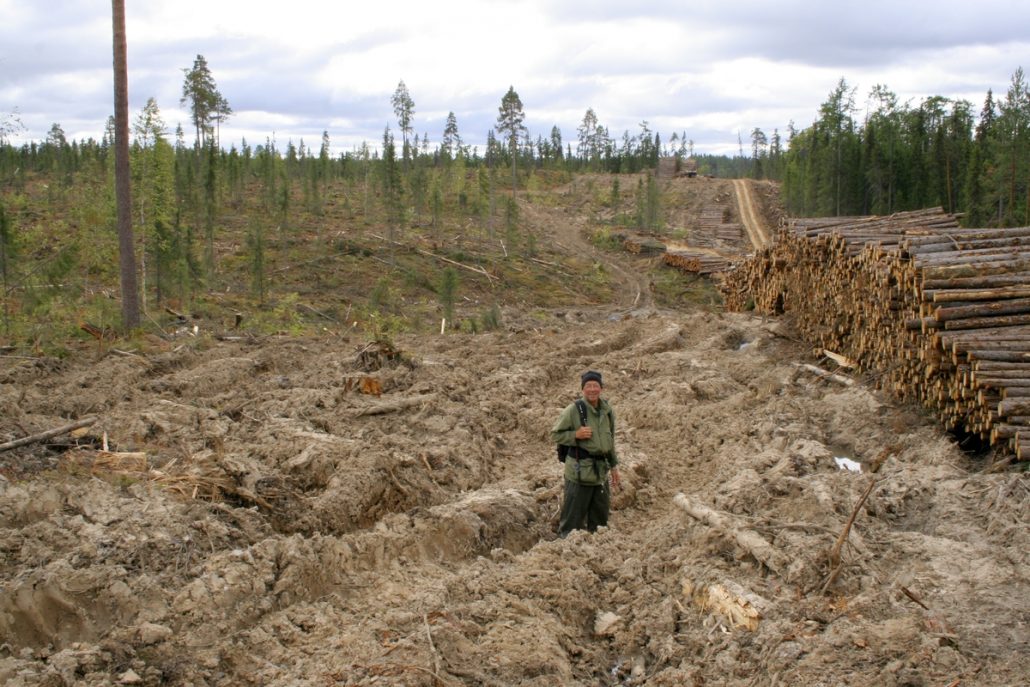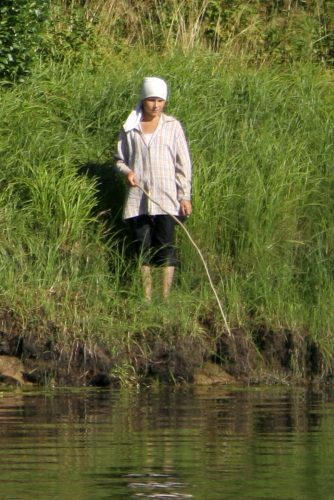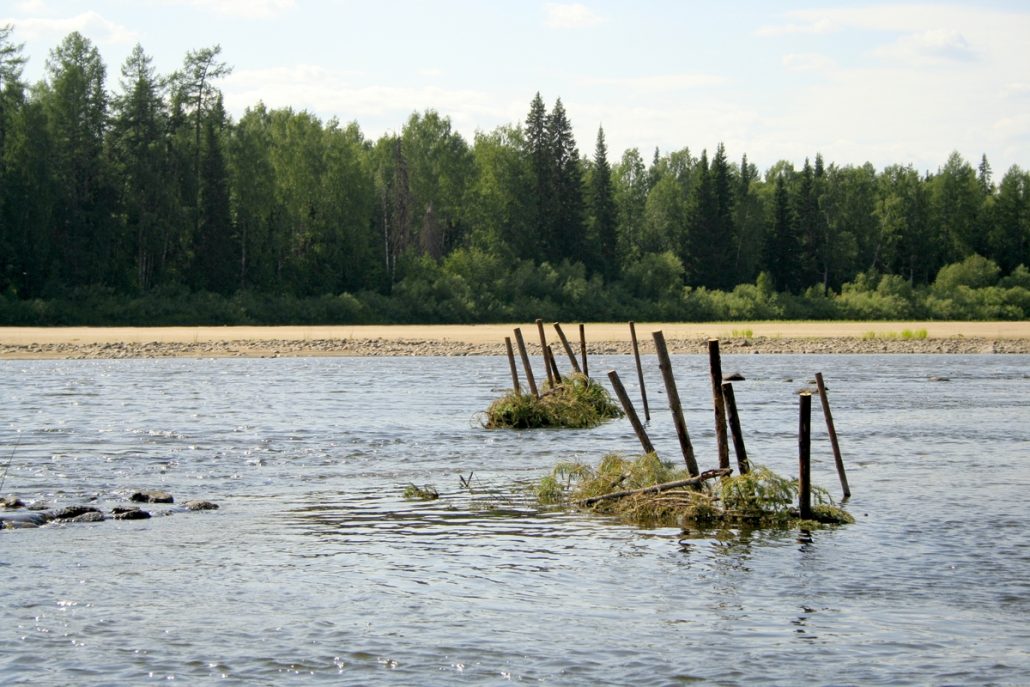«Model River Mezen» project
Rivers have played always important role in the landscapes of the Komi Republic. Due to remoteness of the area and low human population the road system has not been developed. The rivers have been always plays a role of transport and communication system. Almost all villages are settled along rivers, indigenous and other local people use fish resources for sustaining. Lastly rivers became also recreation place. The rivers maintain natural character and many of them have tourist potential. There are also two processes which have negative impact on rivers. First one is industrial logging and industrial use of minerals.
The minerals are exploited mostly in the northern part of the Komi Republicin the forest tundra and tundra zone and we are not planning to deal with this at this stage of the project. Industrial forest logging is related to productive forest zone in southern half of the Komi Republic. Large scale removal of forest cover, road building across wetlands, soil damage and stream disturbances, caused by logging operations, have negative impact on whole fresh water system. Unfortunately there is no research to document it, to study cause-effect chain and to develop suitable recommendations. Local population is recording lower water level and strong changes in streams after logging and sees it as negative impact on fish population. Climate change can be additive factor to the changes, but it is not studied either.
Local and indigenous population is on the other side of the picture. Indigenous villages are very dependent on forest and river resources. Their participation in the market is very small, often none. Local population, previously partly involved in logging and state farming, has been marginalized by the market economy. State companies did not survived with market prices. Private business needs much less employees in the villages. Lastly introduced modern logging equipment needs much less workers and demands skills which are not available in the villages. Villagers became marginalized, poorer and without perspectives. Last search has shown that average income in the village per person consist 73% of minimum living costs whereas in the towns it is 256% (data collected with different methods, cannot be compared strict way, but give a range of the difference).
In this situation villagers, both indigenous and non local origin became very dependent on private garden, forest and river resources.
Despite of natural character of rivers fish population has dramatically decreased over last 20-50 years. Over harvesting is called a cause number one, changes in fish habitat due to industrial logging – a cause number two. The decrease of fish population has direct negative impact on local villages and on chances for fishing tourism development. Over harvesting is linked with break of traditional divisions of river among indigenous families, with common use of motor boats, with developed illegal fishing, with logging roads opening access to the rivers, with poverty of villagers and easy access to the cheap nets. Also former system of fish management is not adequate to new situation. Local population is not involved into management process; instead it is exposed for numerous bans. fines and limited access to fish resources. This type of management is not popular among poor villagers.
Increasing dependence on natural resources makes villagers more vulnerable for misuse and overuse of these resources. Fish has been the most easy and vulnerable for over harvesting. Industrial newcomers have cornered traditional division of fishing grounds among families. They did it, unfortunately, in accordance to the law. Traditional moderate use of resources has disappeared. Local population has been equipped with new means of fishing like motor boats and cheap nets. During last 20 years the fish resources have been depleted in all accessible rivers including, previously very common, Atlantic Salmon,. Local population remained without fish and without experience on how to rebuild these resources. On the top of that current legislation and management based on bans, unrealistic to be implemented, does not support responsible management of fish resources. Despite long-term state limitations on fishing the situation is not getting better. Beside restriction there is no complex program of fish restoration.
The problems can be summarized as follows:
- Sharp decrease of the fish resources in the rivers of the Komi Republic has been stated during last 20-50 years.
- Illegal fishing, unemployment, poverty of local population and mass use of nets are main causes of depletion of fish resources.
- Atlantic Salmon and White Salmon (Russian name “nelma”), previously abundant, became almost rare species due to over harvesting.
- Industrial forest logging and mineral use opened access to rivers for newcomers what ruined moderate traditional fishing based on families and community fishing grounds.
- Changes in fish habitat, as second factor limiting fish resources (logging impact, low water level, climate change) are not studied sufficiently.
- Integrated approach to fish resources and to river management is missing.
- Legal base is leading to unrealistic bans and is not supporting restoration and management of fish resources.
- Social aspect of fish management is undeveloped and society has no influence on fish management.
- Local population is not included into fish management although the fish is important for local population survival.
- Realistic program of fish restoration is missing.
We argue that restoration of fish resources is possible, but common effort of all interested parties is needed. Our proposal is to concentrate on the Mezen River as Model River to develop efficient cooperation in fish protection and management.
Working Group
Alina Vaneeva – Udora division of “Komi voytyr”.
Alexey Vurdov – a resident of the village Koslan, writer, Udora district.
Alexandr Zakharov – Institute of Biology of the Komi Scientific Center, Ural Branch of the Russian Academy of Sciences.
Igor Korbut – an entrepreneur, Leshukonsky district.
Galina Kuksa – Division of Water Resources for the Komi Republic.
Tatyana Lobanova – Department of aquaculture and fishery of the Ministry of Agriculture of the Komi Republic.
Albert Loginov – a representative of the village Bolshaya Pyssa, Udora district, Udorachi community.
Vladimir Marichkov – FSI “Komirybvod”.
Alexandr Morozov – AgroUdora cooperative Chairman.
Alexey Politov – FSI “Komirybvod”.
Natalya Vensko – Udora municipal district administration.
Tatiana Tyupenko – Ministry of Natural Resources and Environment of the Komi Republic.
Sergey Tsogoev – Republican Operation Centre of the Protected Areas and Nature Management.
